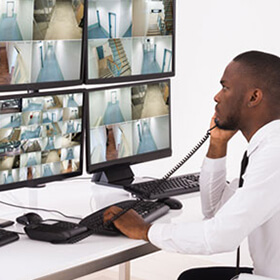
Finding Fraud: How to Balance The Rights Of Employers And Employees
Most fraud-prevention guidance advises owners and manager to monitor employees. But what exactly does this mean? Are you legally entitled to monitor employee computer use? What about security cameras in the workspace? Can you search an employee’s desk if you suspect the person is hiding something? The simple answer is that to stay on the right side of the law, your business must be careful about invading employee privacy.
Their Rights
Many employment laws apply to employees’ privacy rights. In general, they attempt to balance employers’ interests in minimizing losses and injuries and maximizing production with employees’ interests in being free from intrusion into their private affairs.
By adopting and clearly communicating employment policies, your company can, within limits, establish its authority to conduct searches and surveillance that might otherwise be deemed intrusive. But before you communicate your policies, check with your attorney to ensure they don’t violate any federal or state laws.
Your Rights
In most cases, federal law allows employers to monitor employees’ use of company-owned electronic devices (including tracking web use) without their knowledge. But you need to have a legitimate business reason to do so—for example, to prevent losses from fraud. You’re also generally allowed to read both work-related and private employee emails if they’re accessed on work devices.
If your company clearly states a policy to monitor communications, an employee is usually considered to have consented by remaining in the job or by using electronic devices. Keep in mind that some state laws may have more restrictive consent rules.
Other Surveillance
In general you can also monitor business-related phone conversations to and from the workplace. However, you can’t monitor personal calls and must hang up as soon as it’s apparent the call isn’t work-related. There’s one exception to this rule: if the employee has given you permission to listen in.
As for camera surveillance, you’re allowed to install cameras in your company’s offices or production areas, but usually not in “private” areas such as restrooms and locker rooms. And surveillance records must be kept confidential. Only individuals who must know the information to properly perform their duties should have access to evidence of possible wrongdoing.
Physical searches require more care. If possible, you should consult with your attorney before performing a body search. When searching a worker, don’t threaten or apply physical force or restrain or otherwise prevent the employee from leaving the workplace. Aside from possible referral to law enforcement, keep any physical search results confidential to prevent leaks that could form the basis for libel or slander suits.
Threat Is Real
The threat of lawsuits for violating employee rights is real and such litigation can end up being very expensive. So, of course, is the risk of fraud losses. To walk this thin line, work with your attorney, and if you suspect fraud, enlist the help of a forensic accounting expert.
